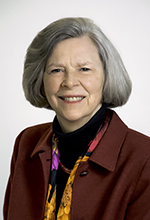
****NEW THIS YEAR!**** Pre-Event Workshops and Virtual Vendor Sessions on TUESDAY, May 20!
Theme: Tradition & Transformation
Speaker

Provost, Boston University Medical Campus
Dean, Chobanian & Avedisian School of Medicine
About the speaker: Dr. Karen Antman, an internationally recognized expert on breast cancer, mesotheliomas and sarcomas, previously served as Deputy Director for Translational and Clinical Sciences at the National Cancer Institute of the National Institutes of Health (NIH) and before that as Wu Professor of Medicine and Pharmacology and Director of the Herbert Irving Comprehensive Cancer Center at Columbia University College of Physicians and Surgeons, where she co-directed the cancer care service line at New York Presbyterian Hospital. She served on the faculty of Harvard Medical School from 1979 to 1993, and had hospital appointments at Brigham and Women’s Hospital and Dana-Farber Cancer Institute in Boston.
She is a member of the Institute of Medicine and serves on the Administration Board of the American Association of Medical Colleges Council of Deans, and on the board of the Educational Commission for Foreign Medical Graduates. She served on the Council of the Fogarty International Center of the NIH and as President of the American Society of Clinical Oncology, the American Society of Blood and Marrow Transplant, and the American Association for Cancer Research. She has more than 300 publications, edited five textbooks and monographs and has published reviews and editorials on medical education, medical policy and the impact of research funding and managed care on clinical research.
The mission of the McCahan Medical Campus Education Conference is to foster a vibrant educational community that supports, develops, and disseminates the best teaching practices and research within a dynamic, collaborative, inclusive learning environment.
In recognition of his excellence as an educator, the Department of Medical Sciences & Education and Boston University Medical Campus is proud to host the 20th Annual McCahan Medical Campus Education Day.
Dr. John McCahan
Dr. John F. McCahan served as the Associate Dean for Academic Affairs at Boston University School of Medicine from 1976 until 2006, during which he oversaw numerous revisions and reforms of the M.D. curriculum. He guided a major change in curriculum governance and chaired the Medical Education Committee, created in this reorganization. Throughout his career, he had a particular interest in the patient-doctor interaction and the teaching methodologies that resulted in effective clinical skills. He has actively taught, studied, and administered a variety of educational formats from large group lectures to one-on-one teaching, feedback, and evaluation. Throughout the years, he earned the admiration of his colleagues for his ability to articulate and implement a clear vision of modern medical education. Read more here.
Notice of Nondiscrimination
Boston University prohibits discrimination and harassment on the basis of race, color, natural or protective hairstyle, religion, sex or gender, age, national origin, ethnicity, shared ancestry and ethnic characteristics, physical or mental disability, sexual orientation, gender identity and/or expression, genetic information, pregnancy or pregnancy-related condition, military service, marital, parental, veteran status, or any other legally protected status in any and all educational programs or activities operated by Boston University. Retaliation is also prohibited. Please refer questions or concerns about Title IX, discrimination based on any other status protected by law or BU policy, or retaliation to Boston University’s Executive Director of Equal Opportunity/Title IX Coordinator, at titleix@bu.edu or (617) 358-1796. Boston University’s full Notice of Nondiscrimination is available at https://www.bu.edu/policies/boston-university-notice-of-nondiscrimination/.

